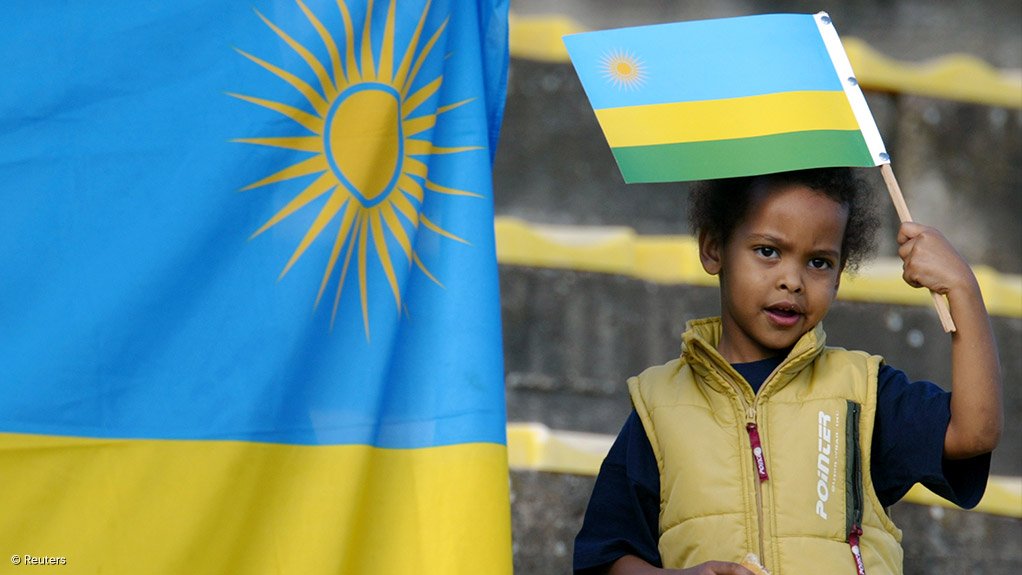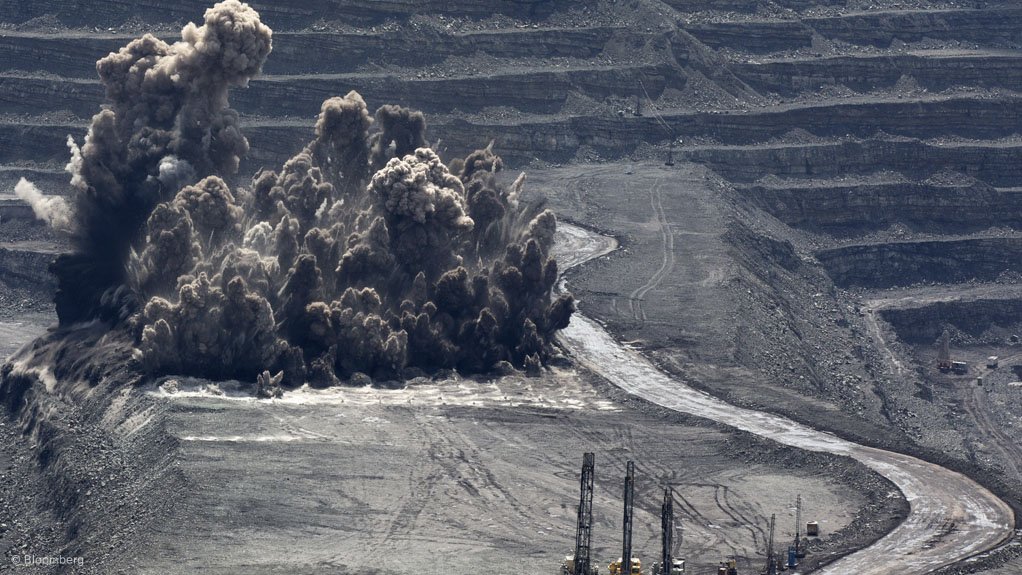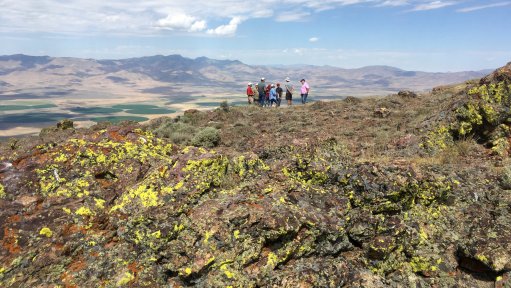Rwanda seeking to attract greater investment in mining sector



DOLLAR SIGNS By 2020, Rwanda aims to generate $800-million from mineral exports and $1.5-billion by 2024
Photo by Reuters
COLLOSAL CONTENDER Rwanda is among the top producers of tantalum ore, producing more than 60% of the global market’s supply needs
To increase mineral exports and boost revenue from its mineral resources, Rwanda aims to attract greater investment in its mining sector, which has created over 40 000 jobs countrywide.
The Central African country aims to generate $800-million by 2020 and $1.5-billion by 2024 from mineral export revenues, as per its government’s seven-year programme.
In a June press release, Rwanda Mines, Petroleum and Gas Board (RMB) reported that it exceeded its 2017 target of generating $240-million in revenue from the country’s mining sector by 55% to generate $373-million. This is an increase of $207-million, compared with $166-million in revenue recorded in 2016.
Sustained investments into modernising mining activities, exploration for new types of minerals, and adding value to gems before exporting have played a big role in the increase, notes RMB. “We are trying to modernise the mining sector and current practices of artisanal mining are being turned into large and industrial mining operations to increase productivity,” says RMB CEO Francis Gatare.
Together with stakeholders, RMB is upscaling Rwanda’s mining sector by completing exploration of potential mineral areas to establish the extent of national resources, in terms of quantity and quality.
Currently, Rwanda exports mainly four types of minerals, namely gold, cassiterite, coltan – from which the elements niobium and tantalum are extracted – and wolfram. But there are ongoing explorations for more types of minerals. For example, gemstone resource occurrences have been identified and mapped, the development of gemstones trading has been assessed, cutting and polishing services have been established and a project proposal was developed and is being discussed for financing options.
According to the African Mining Network (AMN), when speaking at the 59th Tantalum-Niobium International Study Centre (TIC) annual general assembly, Gatare said there is great potential for Rwanda to use its mineral resources, particularly tantalum, to drive its industrialisation, diversification and overall economic transformation. The TIC conference and annual general meeting (AGM) was held from October 14 to 17 in Kigali, Rwanda’s capital.
“He said the mining sector in Rwanda, which is among the fastest-growing economies in Africa, presented different investment opportunities, including mineral exploration, mining, value addition and industrial training,” notes AMN chairperson Yolanda Torrisi.
Rwanda is among the top producers of tantalum ore, producing more than 60% of the global market’s supply needs.
Tantalum products are used in electronics, including cellphones, computers, automotive electronics, jet engine components and nuclear reactors.
Rwanda’s tantalum ore is exported to external buyers, with over 2 000 t produced and exported for from July 2017 to June 2018. Most of the Rwanda’s tantalum is mined in a mixture form with cassiterite, a tin ore. However, most of this tantalum is obtained after carrying out separation of coltan from cassiterite. In 2018, Rwanda’s tantalum production is expected to exceed 2 500 t.
The TIC AGM explored different tantalum issues, such as how by-product tantalum from lithium mining could affect the supply; technological developments in tantalum and niobium applications; key factors affecting tantalum and niobium consumption in its core markets; how recycling impacts supply; the supply chain from the consumer’s perspective; and due diligence essentials ahead of the European Union’s conflict mineral regulation, coming into force in January 2020.
News reports state that Rwanda will use blockchain to record the origin of metals used in electronics, with a focus on tantalum. According to RMB’s website, any person caught in Rwanda in possession of minerals without proof of their origin is liable to an administrative fine equal to 10% of the minerals’ value in and the minerals will be confiscated.
Commenting before the conference, Gatare said the TIC general assembly came at a time when Rwanda is carrying out transformational change in the mining sector. “It is an opportunity to show investors in the mining sector that Rwanda is open to investments that will lead to professional exploration and mining to boost productivity of tantalum and other minerals in the country.”
RMB expected the event to send a powerful message to the world about the long-term sustainability and reliability of conflict-free tantalum from Central Africa, with the TIC general assembly convenes delegates from the global tantalum and niobium industries.
Established in February 2017, RMB is the government of Rwanda body responsible for implementing and advising government on issues related national policies, laws and strategies related to mines, petroleum and gas. It is also mandated to monitor and coordinate the implementation of strategies related to mines, petroleum and gas. In addition to monitoring, it is supposed to carryout research and exploration in geology, mining and petroleum, and disseminate the findings.
Further, RMB is mandated to supervise and monitor private or public entities conducting mining, trade and value addition of mineral operations, as well as assist government in valuing mining and quarry concessions. Lastly, RMB is to cooperate and collaborate with other regional and international institutions carrying out similar missions.
Comments
Press Office
Announcements
What's On
Subscribe to improve your user experience...
Option 1 (equivalent of R125 a month):
Receive a weekly copy of Creamer Media's Engineering News & Mining Weekly magazine
(print copy for those in South Africa and e-magazine for those outside of South Africa)
Receive daily email newsletters
Access to full search results
Access archive of magazine back copies
Access to Projects in Progress
Access to ONE Research Report of your choice in PDF format
Option 2 (equivalent of R375 a month):
All benefits from Option 1
PLUS
Access to Creamer Media's Research Channel Africa for ALL Research Reports, in PDF format, on various industrial and mining sectors
including Electricity; Water; Energy Transition; Hydrogen; Roads, Rail and Ports; Coal; Gold; Platinum; Battery Metals; etc.
Already a subscriber?
Forgotten your password?
Receive weekly copy of Creamer Media's Engineering News & Mining Weekly magazine (print copy for those in South Africa and e-magazine for those outside of South Africa)
➕
Recieve daily email newsletters
➕
Access to full search results
➕
Access archive of magazine back copies
➕
Access to Projects in Progress
➕
Access to ONE Research Report of your choice in PDF format
RESEARCH CHANNEL AFRICA
R4500 (equivalent of R375 a month)
SUBSCRIBEAll benefits from Option 1
➕
Access to Creamer Media's Research Channel Africa for ALL Research Reports on various industrial and mining sectors, in PDF format, including on:
Electricity
➕
Water
➕
Energy Transition
➕
Hydrogen
➕
Roads, Rail and Ports
➕
Coal
➕
Gold
➕
Platinum
➕
Battery Metals
➕
etc.
Receive all benefits from Option 1 or Option 2 delivered to numerous people at your company
➕
Multiple User names and Passwords for simultaneous log-ins
➕
Intranet integration access to all in your organisation




















